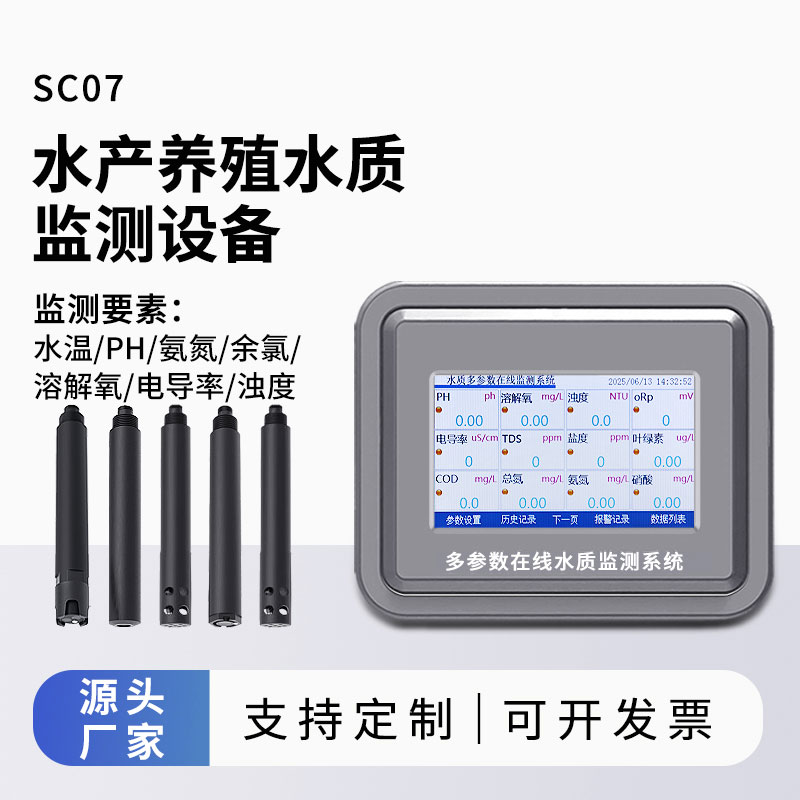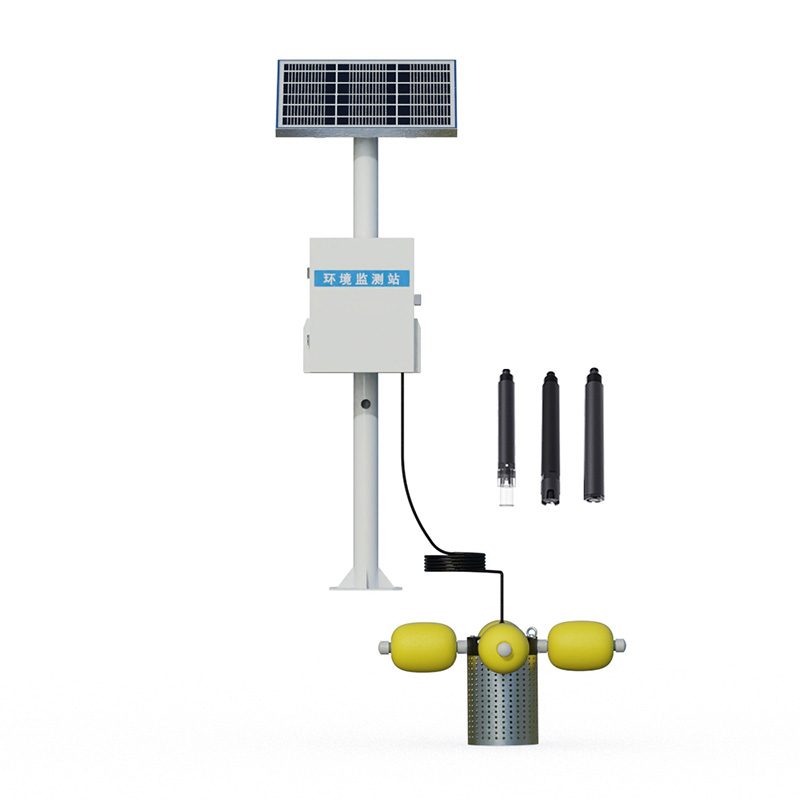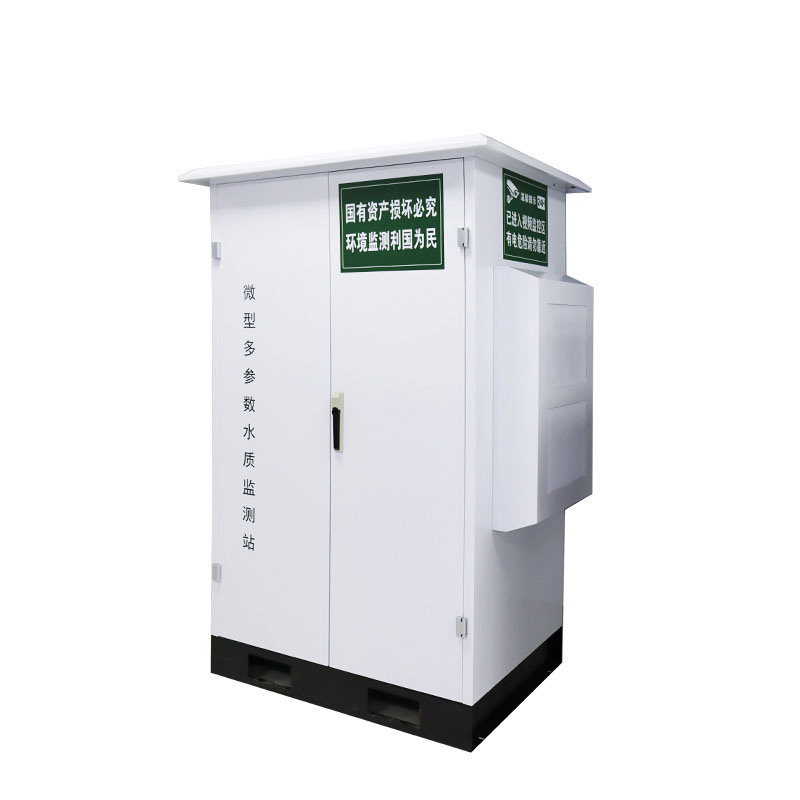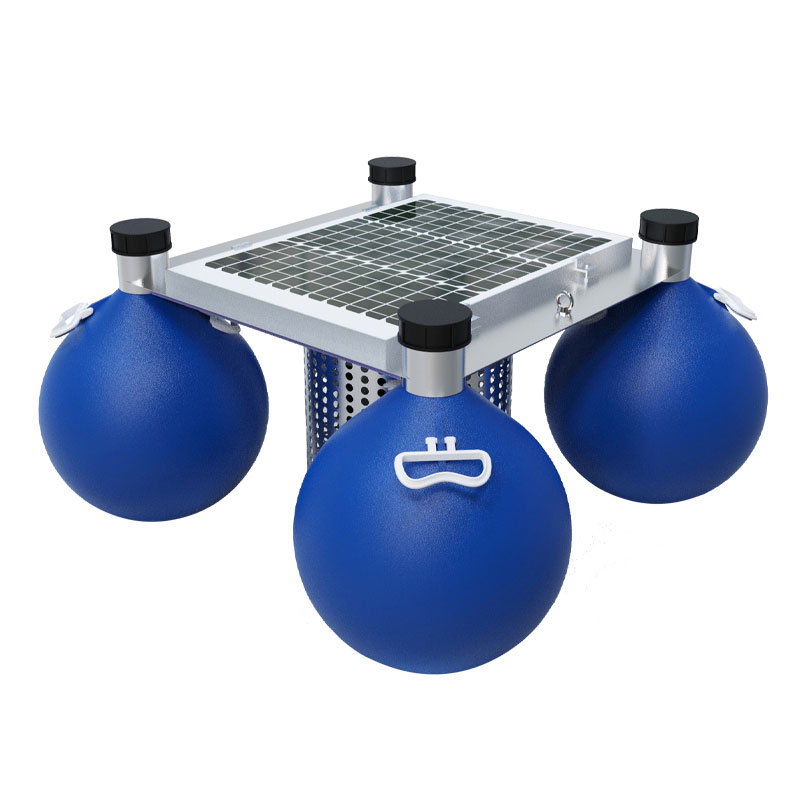Product Center
-
Hydrological equipment monitoring station
-
Water Quality Monitor Sensor
-
Plant protection equipment
-
Food Testing Equipment
- Radar Flow Meter Non-Contact Remote Sensing System for Open Channel Flow
- Automatic Monitoring and Identification Technology for Locusts Attracted by Light and Sex Traps
- Groundwater level monitoring equipment: Precise Measurement of Deep Well Water Levels
- Intelligent monitoring device for forest pests and diseases Accurately Captures Insect Data
- Termite Baiting Systems Real-Time Termite Activity Monitoring System
- Soil moisture monitoring station Field Rapid Deployment Monitoring of Soil Moisture, Temperature, and Electrical Conductivity
Shandong Fengtu IOT Technology Co., Ltd
Sales Manager:Ms. Emily Wang
Tel, Whatsapp:+86 15898932201
Email:info@fengtutec.com
Add:No. 155 Optoelectronic Industry Accelerator, Gaoxin District, Weifang, Shandong, China

Aquaculture Water Quality Monitoring
Model:FT-SC07
Brand:fengtu
Related products
Product details
1. Aquaculture Water Quality Monitoring Product Introduction
Aquaculture Water Quality Monitoring integrates wireless transmission, sensors, software development and other technologies to achieve aquaculture water quality monitoring.SC07 Online Aquaculture Water Quality Monitoring is an instrument that can monitor water temperature, pH, ammonia nitrogen, residual chlorine, dissolved oxygen, conductivity, and turbidity online. It integrates the corresponding sensors and measurement module communication storage, and can quickly and accurately record the key parameters in the water body. At the same time, the instrument supports the expansion of water quality multi-parameter sensors, including but not limited to pH value, dissolved oxygen (DO), conductivity, turbidity, temperature, ammonia nitrogen, etc., which can be combined and configured according to different needs and applications, record and store historical monitoring data, alarm history records, and support historical data export.xlsx. The RS485 interface supports MODBUS-RTU communication protocol to facilitate users to communicate freely with PLC, DCS, configuration software, DTU and other devices to connect and transmit data.
2. Aquaculture Water Quality Monitoring Application Areas
Online Aquaculture Water Quality Monitoring is widely used in the monitoring and control of various water bodies, including but not limited to the following areas:
1. Aquaculture monitoring: used to monitor aquaculture water quality parameters such as ammonia nitrogen, pH, water temperature, etc., in order to optimize the aquaculture environment and improve the production speed and product quality of aquatic products.
2. Groundwater monitoring: used to monitor groundwater parameters such as pH value, conductivity, temperature, etc., so as to detect and solve water quality problems in time.
3. River and lake monitoring: used to monitor the water quality of rivers and lakes, such as dissolved oxygen, turbidity, ammonia nitrogen and other parameters, so as to take timely pollution control measures.
4. Ocean monitoring: used to monitor the water quality of the ocean, such as salinity, dissolved oxygen, temperature and other parameters, so as to timely detect and control marine pollution.
5. Sewage treatment: used to monitor sewage water quality parameters, such as pH, COD, ammonia nitrogen, etc., in order to control and adjust the sewage treatment process.
6. Industrial production: used to monitor water quality in industrial production processes, such as pH, conductivity, dissolved oxygen and other parameters, so as to adjust the process in time and ensure product quality.
7. Water plant: used to monitor the pH value, dissolved oxygen, turbidity and other parameters of tap water to ensure the safety and hygiene of tap water.
8. Scientific research: used for water quality monitoring in the field of scientific research, such as lake eutrophication, climate change, etc.
3. Technical Features of Aquaculture Water Quality Monitoring
1. High reliability: suitable for long-term work in the field environment, stable measurement and strong anti-interference ability.
2. Flexible and portable: Each probe can be freely combined, replaced independently, and plug and play.
3. Scalability: Various sensors can be freely combined.
4. Multiple applications: on-site rapid measurement, emergency monitoring, or long-term online monitoring of groundwater, river water, lake water, and urban pipe network water.
5. Tough shell: ABS+PC material, corrosion-resistant, can work normally for a long time.
6. Compact structure: can be installed in small places.
7. Communication connection: RS485 expansion interface, master/slave interface isolation and independent communication.
4. Aquaculture Water Quality Monitoring Technical Parameters
| Display Output | 4.3-inch touch screen with strong LED backlight, can be operated under direct sunlight |
| power supply | DC power supply: DC12V |
| Power consumption | The power consumption of the instrument is about 12V/1W |
| Sound Output | buzzer |
| Communication Protocol | Standard RS485 Modbus-RTU protocol and device master/slave transmission channel support |
| Main Materials | ABS+PC material |
| Storage temperature | -20 to 70°C |
| Operating temperature | -10 to 50°C |
| Protection level | IP65 |
| size | 175mm*140mm*49mm(length×width×height) |
| weight | About 0.5KG |
5. Aquaculture Water Quality Monitoring Sensor Configuration
| Model | Name | Measurement range | Principle | Measurement accuracy | Resolution | Is it standard equipment | Note |
| S4 | Residual chlorine | 0~5.00mg/L | Ion selective electrode method | ±5% of the reading; ±0.3℃ | 0.01mg/L | √ | Free chlorine pH integrated; Best accuracy at flow rates of 0.42m/s-0.85m/s; With temperature compensation |
| pH | 0~14 (ph) | Electrochemistry (salt bridge) | ±0.1PH;±0.1℃ | 0.01 | √ | ||
| S5 | Ammonia nitrogen | 0~1000mg/l | Ion selective electrode method | 10% of the reading, ±0.5℃ | 0.01mg | √ | Ammonia nitrogen pH integrated; with temperature compensation |
| pH | 0~14 (ph) | Electrochemistry (salt bridge) | ±0.1PH;±0.1℃ | 0.01 | |||
| S7 | Electrical conductivity | 0~10000uS/cm | Contact method of electrode | ±1.5%; ±0.1°C | 1uS/cm | √ | With warm supplement |
| S8 | Dissolved oxygen | 0~20mg/L | Fluorescence lifetime method | ±2%, ±0.3℃ | 0.01mg/L | √ | With warm supplement |
| S9 | Turbidity | 0~1000NTU | Scattering light method | ±1%, ±0.3℃ | 0.1NTU | √ | With warm supplement |
This paper addresses:https://fengtusz.com/On-line-Water-Quality-Analysis/Aquaculture-Water-Quality-Monitoring.html
- Previous Article :Pool and Spa Water Quality Monitoring
- Next Article:Waste Water Quality Monitoring
Related article
-
Precision Meteorological Monitoring: The Ultrasonic Smart Weather Station Advantage
2025-10-20 -
School weather station: A Valuable Educational Tool in School
2024-11-18 -
Application of Soil moisture monitoring equipment in Agricultural Irrigation Management
2025-11-24 -
Smart Water Quality Monitor
2024-08-15 -
Fengtu: Your Reliable Choice for Online Water Quality Monitoring
2024-10-09 -
Want to know the actual moisture condition of the land? Try this Soil Temperature and Moisture Meter!
2025-04-01 -
Unlocking Solar Panel Integrity: Introducing the Portable EL Detector for Comprehensive Inspection
2024-09-11 -
Tube-Type Soil Moisture Sensors & Automatic Soil Monitoring Systems by Fengtu Technology for Precision Agriculture
2025-08-22


 Get a Free Quote
Get a Free Quote






